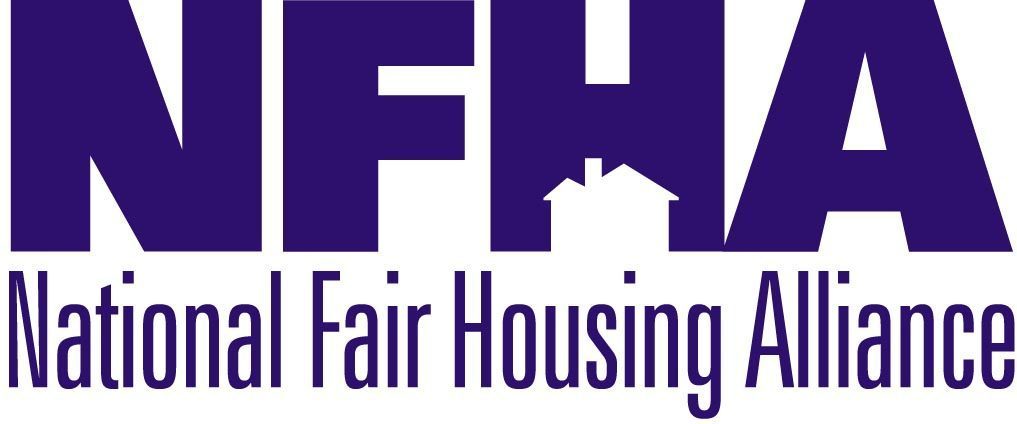Federal Court Advances Landmark Housing Discrimination Case Against Deutsche Bank, Ocwen, and Altisource to Trial
- At April 15, 2025
- By fhfla
- In News
 0
0
The National Fair Housing Alliance (NFHA), Fair Housing Center of the Greater Palm Beaches (FHC) and 18 fair housing organizations have achieved a significant legal victory as a federal district court in Chicago denied the defendants’ motions for summary judgment in a critical 2018 housing discrimination lawsuit, National Fair Housing Alliance, et al. v. Deutsche Bank National Trust, et al. This decision now paves the way for the lawsuit against Deutsche Bank National Trust Company, Deutsche Bank Trust Company Americas, Ocwen Financial Corp., and Altisource Portfolio Solutions, Inc. to proceed to trial. Plaintiffs allege that these defendants engaged in discriminatory practices by failing to uphold their duty to maintain and market foreclosed properties in Black and Latino neighborhoods to the same standards as those in predominantly white areas, in violation of the federal Fair Housing Act (FHA).
The lawsuit, filed in February 2018 by NFHA, the FHC and 18 fair housing organizations, builds on an extensive multi-year investigation starting in 2010 and continuing through 2017 in the wake of the mortgage foreclosure crisis. Evidence summarized in the complaint reveals stark inequities. The investigation showed that homes in white neighborhoods were methodically maintained and marketed, while properties in Black and Latino neighborhoods were left in severe disrepair, contributing to safety hazards, declining property values, and worsening economic conditions in historically underserved communities. Plaintiffs presented expert evidence the Court has permitted to be presented at trial that these disparities in maintenance were attributable to neighborhood racial composition, not to non-racial factors, and that race played a statistically significant role in the differential treatment.
The 120+ page ruling, delivered by U.S. District Judge Manish S. Shah, (N.D. Illinois) allows Plaintiffs’ disparate treatment and disparate impact claims to move forward against all defendants. The Court cited evidence of mortgage servicers Ocwen and Altisource abdicating their obligations to maintain properties, and a host of policies that may be shown at trial to cause negative outcomes in communities of color, as compared to other neighborhoods. In turn, the Court held that trustees like Deutsche Bank can be held liable under the FHA for the discriminatory activities of their mortgage servicers. Judge Shah also recognized that all plaintiffs had established sufficient standing to pursue the FHA case in federal court, finding that the critical services that plaintiffs offer were “sufficient to demonstrate that defendants’ REO conduct perceptibly impaired the organizations’ core activities.”
“This is a pivotal decision—not only for NFHA and our partners but for underserved communities across the country that have long endured neglect and inequitable treatment,” said Lisa Rice, President and CEO of NFHA. “This case isn’t just about holding Deutsche Bank, Ocwen and Altisource accountable. It’s about beginning to repair some of the harm that continues to ripple through communities as a result of discriminatory housing practices. This decision carries the promise of hope for neighborhoods that were disproportionately targeted for predatory loans and negatively impacted by the foreclosure crisis. It’s a clear step forward in the fight for equity and justice.”
The full order can be viewed here.
FEDERAL JUDGE HALTS HUD AND DOGE TERMINATION OF GRANTS TO FIGHT HOUSING DISCRIMINATION
- At March 26, 2025
- By fhfla
- In News
 0
0

Relman Colfax and Fair Housing Advocates Ask Court to Halt HUD’s and DOGE’s Termination of Grants to Fight Housing Discrimination
- At March 15, 2025
- By fhfla
- In News
 0
0

Washington, D.C.—Relman Colfax and four members of the National Fair Housing Alliance (NFHA) announce the filing of a lawsuit against the U.S. Department of Housing and Urban Development (HUD) and Department of Government Efficiency (DOGE). This legal action follows HUD’s sudden and unlawful termination of grants disbursed under the Fair Housing Initiatives Program (FHIP). The termination of those grants jeopardizes over $30 million in critical, congressionally authorized funding for fair housing groups to fight housing discrimination and enforce fair housing laws throughout the country.
The lawsuit, filed in the United States District Court in the District of Massachusetts, is brought on behalf of a proposed class of more than 60 fair housing groups whose grants were abruptly terminated by HUD and DOGE on February 27, 2025. Plaintiffs have moved for a temporary restraining order (TRO).
Fair housing groups, funded by FHIP, have long served as the backbone of efforts to combat housing discrimination, enforcing the Fair Housing Act (FHA). These groups investigate housing discrimination complaints, enforce fair housing laws, assist individuals facing discrimination, educate communities about their rights, and collaborate with local governments to expand fair and affordable housing opportunities. FHIP grants–which originated from Congress’s recognition of the central role of fair housing organizations in combating housing discrimination–are a primary source of funding for fair housing groups.
Civil and Human Rights Organizations Sue Trump Administration Over Executive Orders Banning Diversity, Equity, Inclusion, Accessibility and Erasing Transgender People
- At February 28, 2025
- By fhfla
- In News
 0
0
The Legal Defense Fund (LDF) and Lambda Legal filed a federal lawsuit on behalf of the National Urban League, the National Fair Housing Alliance, and the AIDS Foundation of Chicago challenging three anti-equity executive orders from President Trump related to diversity, equity, inclusion, accessibility and transgender people.
LDF and Lambda Legal claim these orders will severely limit the organizations’ ability to provide critical social and health services such as HIV treatment, fair housing, equal employment opportunities, affordable credit, civil rights protections, and many others. This would harm countless people across the United States, including people of color, women, LGBTQ+ people, people with disabilities, and people living with HIV.
The lawsuit claims that the administration is violating the organizations’ rights to free speech and due process and is engaging in intentional discrimination by issuing and enforcing the anti-equity orders.
The three executive orders being challenged terminate equity-related grants and forbid federally-funded entities from engaging in diversity, equity, inclusion, and accessibility programs, and from recognizing the existence of transgender people. Together, these orders reverse decades of civil rights progress and pose an existential threat to the organizations that advocate for the civil rights of transgender people, and provide them shelter, services, and support.
“As a Black man living with HIV who has experienced homelessness, for years, I have relied on the lifesaving services of organizations like AIDS Foundation Chicago (AFC), who understood my intersectional identities. Now, as I work in the HIV field, I am deeply concerned about the threat these orders represent to AFC’s ability to serve our communities if they can’t even name the issues our people are facing.” said Will, an AIDS Foundation Chicago program participant and caseworker for another organization.
“In the past decade, the National Urban League has served over 22 million Americans. In the face of economic downturns and a global pandemic, our workforce programs have placed over a quarter million people in jobs and provided job training in over 90 markets, and that number grows every year,” said Marc H. Morial, President & CEO of the National Urban League. “Many of our programs are supported by the Department of Labor. The assault on diversity, equity, and inclusion is discriminatory at best and an attempt at institutionalized economic oppression at its worst.”
“We cannot end the HIV epidemic without working to address health disparities for Black, Latine, LGBTQ+ people, and transgender women. We must be able to prioritize these populations in our work – whether that’s through outreach, engagement initiatives, staff training, or resources – because they are disproportionately impacted by HIV These executive orders would prohibit us from doing that critical and lifesaving work, putting our clients’ and the broader community’s health at risk.” said John Peller, President & CEO, AIDS Foundation Chicago.
“Fair housing is a national policy of the U.S. Our nation’s fair housing principles are embedded in the Constitution and civil rights statutes secured by the blood, sweat, tears, and lives of millions of people who fought to make our Declaration of Independence and Constitution real for everyone in this country. The Constitution and our civil rights laws are centered on diversity, equity, inclusion, and accessibility. The President cannot undo the Constitution or take away our rights by affixing a signature to an executive order,” said Lisa Rice, President and CEO of the National Fair Housing Alliance. “The administration’s Executive Orders and OMB funding freeze memorandum have caused chaos, fear, insecurity, dysfunction, and loss of rights. The Administration’s illegal actions put all people in harm’s way, driving up the cost of housing and leaving millions exposed to discrimination, harassment, and retaliation with no structure for protection. ‘Out of Many, One’ is our national motto – any effort to divide, stoke fear and treat people unfairly is not in line with our nation’s founding principles. America is best when united and relentlessly pursuing a country where everyone, regardless of their background, has a fair chance at reaching the American Dream.”
“Beyond spreading inaccurate, dehumanizing, and divisive rhetoric, President Trump’s executive orders seek to tie the hands of organizations, like our clients, providing critical services to people who need them most,” said Janai Nelson, President and Director-Counsel of LDF. “The three orders we are challenging today perpetuate false and longstanding stereotypes that Black people and other underrepresented groups lack skills, talent, and merit—willfully ignoring the discriminatory barriers that prevent a true meritocracy from flourishing. We proudly stand with our clients and Lambda Legal against these unconstitutional orders and hope the court will act quickly so the arduous work of advancing and sustaining our multiracial democracy can continue without unlawful interference from the Trump administration.”
“These policies drip with contempt for transgender people, and pose a significant threat to critical health and HIV services that support marginalized communities, putting lives at risk,” said Jose Abrigo, Lambda Legal’s HIV Project Director. “These orders pose an existential threat to transgender people and the organizations that provide them with shelter and support. The orders defund organizations providing critical health and HIV services, and punish organizations for striving to improve the lives of Black people, people of color, and members of other marginalized communities. They are patently unconstitutional. Lambda Legal and LDF teamed up because the fights to end racism, the HIV epidemic, and anti-transgender bias are inseparable. For organizations like our plaintiffs providing these services, addressing these compounding barriers is essential to HIV prevention and care, and this policy would impede the work to eradicate and address the HIV epidemic.”
The lawsuit, National Urban League v. Trump, filed in the U.S. District Court for the District of Columbia, claims that the executive orders violate the plaintiffs’ First Amendment right to free speech by censoring and chilling their views on diversity, equity, inclusion, and accessibility. The plaintiffs also claim that the executive orders are so vague that the organizations do not know what is and is not prohibited, in violation of their Fifth Amendment due process rights. Moreover, the executive orders discriminate against people of color, women, and LGBTQ+ people, with particular animus towards Black people and transgender individuals, in violation of the Fifth Amendment’s guarantee of equal protection.
You can read the full complaint here.

